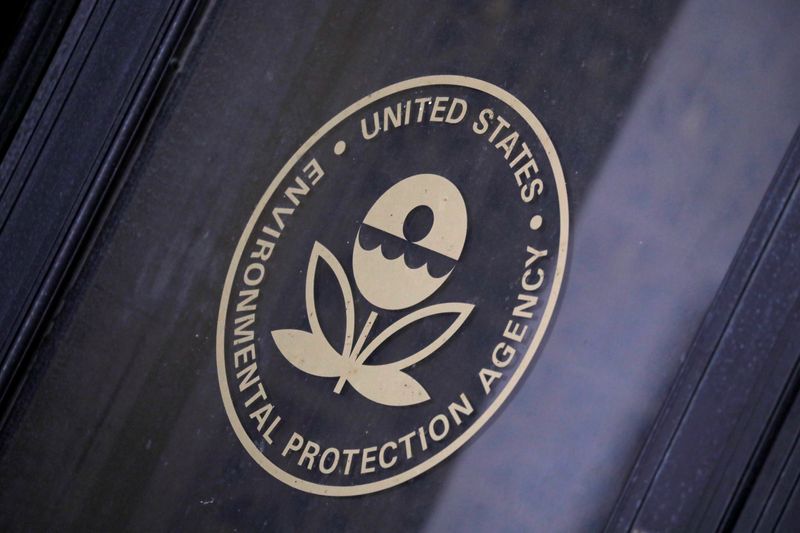By David Shepardson
WASHINGTON (Reuters) - A group of 95 U.S. lawmakers on Thursday urged the Biden administration to finalize stricter emissions limits than it proposed in April, already prompting opposition from most automakers, a letter seen by Reuters showed.
A dozen Democratic senators, including Ed Markey, Tom Carper, Alex Padilla, Ron Wyden, Elizabeth Warren, Jack Reed and independent Bernie Sanders joined more than 80 House members in asking the Environmental Protection Agency to finalize stricter tailpipe emissions limits that would result in 69% of new vehicles being electric in 2032, rather than 67% under the agency's proposal.
"We believe the United States should be on a path to eliminating harmful tailpipe pollution from new light-duty and medium-duty vehicles by 2035," the lawmakers wrote in the previously unreported letter.
The EPA said in April the proposed 2027-2032 model year standards would cut emissions by 56% over 2026 requirements, but sought comment on a tougher option.
The lawmakers, including Democratic Representatives Doris Matsui, Alexandria Ocasio-Cortez, Jan Schakowsky, Katie Porter and Adam Smith, said the EPA should by the end of the year finalize the tougher proposal resulting in a 61% cut by 2032.
They cited "the urgency of and benefits from addressing threats to public health, including climate change, the unprecedented resources supporting zero-emission vehicle purchases, manufacturing and infrastructure, and the dramatic advances in clean vehicle adoption."
Republican lawmakers and Republican state attorneys general have urged the EPA to abandon its aggressive emissions cuts, while environmental campaigners want tougher cuts.

A group representing major automakers including the Detroit Three wants the administration to significantly soften requirements, calling the EPA proposal "neither reasonable nor achievable."
The Alliance for Automotive Innovation, which represents General Motors (NYSE:GM), Ford Motor (NYSE:F), Volkswagen (ETR:VOWG_p), Toyota Motor, Hyundai Motor and others, recommended "adopting requirements for 40% to 50% (electric, plug-in electric and fuel vehicles) in 2030 with continued increases through 2032. In contrast, Tesla (NASDAQ:TSLA) has urged the EPA to finalize stricter emissions limits.